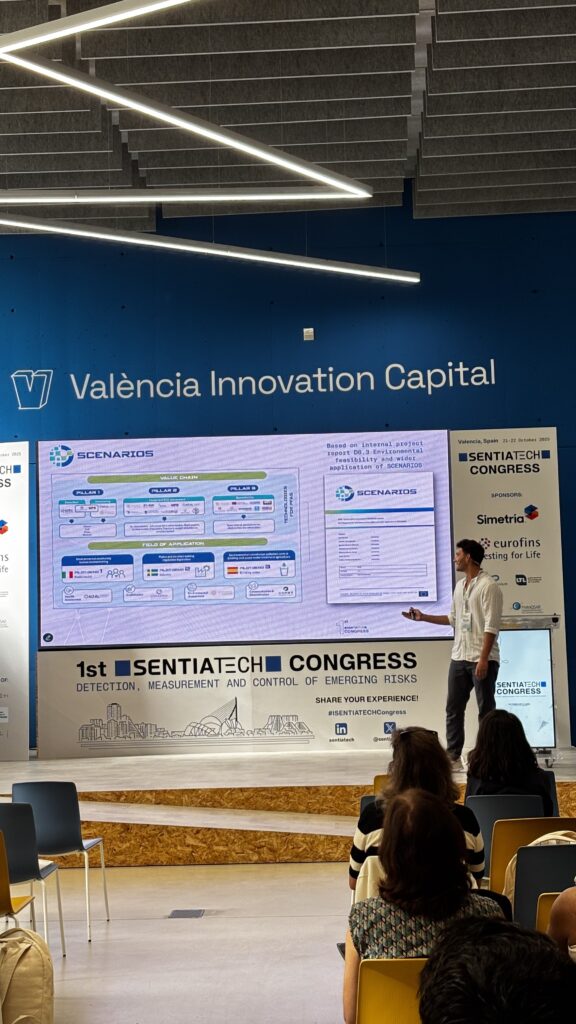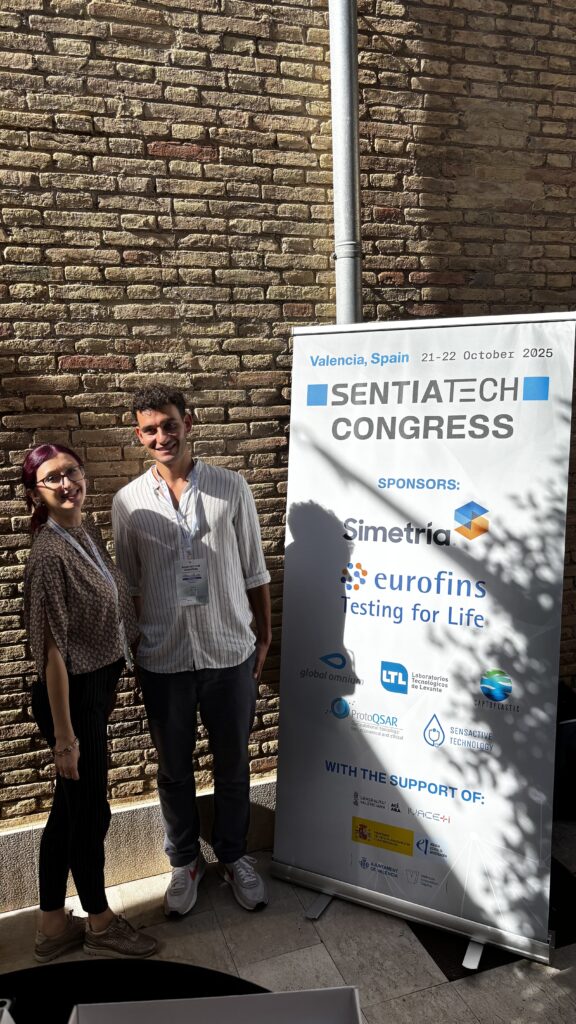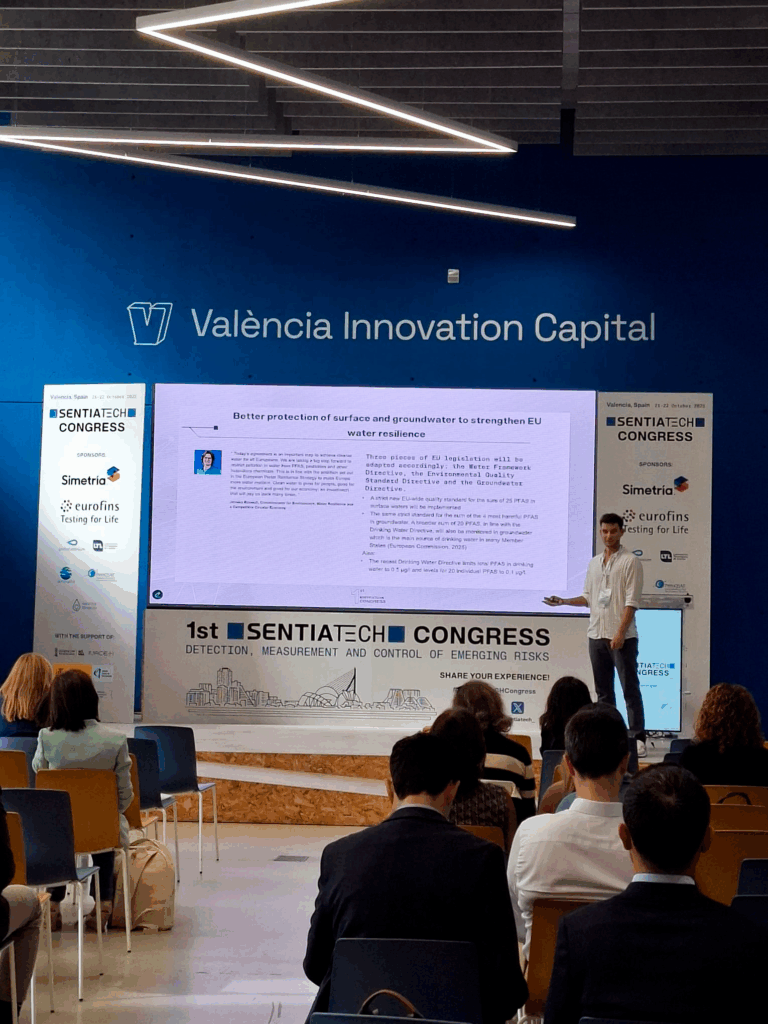SENTIATECH Congress took part in Valencia, Spain on the 21st and 22nd October with over 200 professionals from the scientific community, general public, industry and policy makers sectors. SENTIATECH is an international platform focused on sustainable technologies for water, soil and environmental protection where researchers, technology providers and policymakers present advances and best practices in contamination detection and remediation. Academic partners, research centres and private companies contributed scientific expertise, demonstration support and technology solutions (e.g., remediation pilots, monitoring tools and socio-economic analyses).
There were two presentations delivered on 22 October 2025, that drew on LOMARTOV’s work within WP8 (Sustainability Assessment) of the SCENARIOS project. The first presentation focused on the economic and environmental feasibility and wider application of the remediation solutions developed under the project. The second reflected to the social assessment of SCENARIOS strategies, examining how societal factors, stakeholder perceptions, and community engagement influence the successful implementation and acceptance of PFAS remediation efforts in Europe.


The first presentation, “Cost-Benefit and Feasibility Assessment of PFAS Remediation Technologies in Europe,”was delivered by Ioannis Spyropoulos. It presented a detailed cost benefit analysis associated with implementing SCENARIOS PFAS remediation technologies across European sites. Drawing on quantitative data from demo sites and EU contamination records, the study showed that the benefits of implementing PFAS remediation technologies far exceed the treatment costs. Estimated benefits surpass cost for extensive water purification. The larger the affected population, the more attractive is remediation. Factors for prioritising sites for application of SCENARIOS remediation technologies were also presented. The presentation concluded that although e ach site has site-specific socio-economic characteristics and cost-benefit trade-offs, not acting against PFAS contamination is not the cheapest option.

The second presentation, “Overcoming Social Barriers to PFAS Remediation,” was delivered by Mihaela Mirea Candea. It explored the social dimensions of PFAS contamination and remediation, focusing on how trust, communication, and community involvement can shape public acceptance. Based on surveys and workshops, part of our work in SCENARIOS, the study identified low institutional trust, limited awareness, and economic concerns as key barriers to public support. The presentation highlighted the need for tailored communication strategies, participatory decision-making, and long-term stakeholder engagement to build legitimacy and foster collaboration among citizens, policymakers, and industry actors.

We are looking forward to more events were to present the work carried out in SCENARIOS.